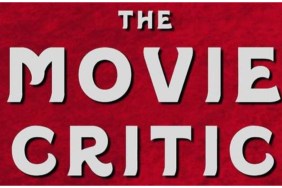
Organized into five chapters and running at 2 hours and 32 minutes, it took me two screenings of Quentin Tarantino’s World War II re-imagining Inglourious Basterds to completely formulate my opinion. Originally I found myself unnerved by the running time and bored in the middle of major scenes. I don’t know if it was the improved theater setting or just a matter of being better prepared, but my second screening was true joy as the majority of my earlier complaints were no longer a concern. I was able to sit back and enjoy every minute, although I still won’t say it ends up being the “masterpiece” the film’s final line of dialogue claims it to be, but if you are a fan of Tarantino you would be hard-pressed not to enjoy yourself and I expect many to come out absolutely loving it.
Despite the fact Inglourious Basterds is a piece of historical fiction, the world it lives in isn’t entirely unfamiliar. Beginning in 1941, we are knee deep in the madness of World War II. Of course, there is one difference, this is World War II through the eyes of Quentin Tarantino and that is a fact you should not forget. This isn’t a non-stop shoot ’em up filled with explosions and mortar shells. It also doesn’t bathe in the gore Tarantino offered in the Kill Bill duology, although a scene or two may have you clutching your stomach making sure your nachos stay put. Most of all, this is a long-winded talky that is sure to turn off some while absolutely enthralling others, and for good reason; Tarantino is a master wordsmith.
Inglourious Basterds gets its name from a group of Nazi-hunting Americans dropped into France with the mission to do “one thing and one thing only – killing Nat-zees” as said by Lt. Aldo Raine played with exuberance by Brad Pitt. He’s countered on the German side by Col. Hans Landa played by Christoph Waltz in an Oscar-worthy performance. Landa sees the corners while Raine runs through the wall. However, these two are merely pawns Tarantino toys with in a much larger story.
In Paris, France, 1944, we meet Shosanna Dreyfus (Melanie Laurent) the owner of a movie theater and the lone survivor in her family following one of Landa’s raids three years prior. Thanks to the eager infatuation of a young German soldier, the world premiere of a film based on his sharpshooting exploits is now set to premiere and Shosanna’s theater is playing host. No fan of the Third Reich, and knowing Hitler and his closest advisors will be in attendance, Shosanna prepares to make sure it is the last movie any of them see. Little does she know, the Basterds have also set their sights on said movie premiere setting the film up for a heated showdown before the credits roll.
The high point is undoubtedly the performance from Christoph Waltz. He’s an unexpected gem. It’s like reaching in your pocket and finding a $20 bill and then reaching in your other pocket and finding $100. He’s elegant, fierce, shrewd, cunning and most of all, proficient. He bares the nickname “Jew Hunter” and his reputation precedes him. It is here Landa shares common ground with Pitt’s Aldo Raine, and I enjoy both characters very much, but their frightening reputations are where the comparisons end. While Landa verbally toys with his victims realizing they are already caught in his trap, Raine is a to-the-point “Nat-zee” killing zealot with hardly a shred of compassion but plenty of character. Landa’s the eloquent villain to Raine’s illiterate virtue. History has taught us to hate one side while cheering for the other, and Tarantino works that hatred to the fullest, but isn’t afraid to use Landa as a source of entertainment along the way.
If Inglourious Basterds has a rough patch it involves the film’s two female leads. In the past Tarantino has brought us some of cinema’s greatest female characters from Uma Thurman’s turns as Mia Wallace in Pulp Fiction and The Bride in Kill Bill to Pam Grier in Jackie Brown. However, with Inglourious Basterds he does his heroines little to no favors. Sure, Melanie Laurent has a share of moments such as a one-sided sit down conversation with Landa, but again the scene is owned by Waltz, so much so that Laurent is given no room to breathe. It works for the scene, but does little for a character that never really hits her stride.
The same goes for Diane Kruger as A-list German-actress-turned-spy Bridget von Hammersmark. However, my case against this character is not only limited to the lack of interest I had in Von Hammersmark as much as I also thought Kruger brought very little outside of looks to the role. Unfortunately, I have only seen Kruger’s American film work and have no way to compare her work here to anything other than films such as Wicker Park and National Treasure, but suffice to say I found her rather uninteresting.
Finally, the supporting cast. I would have loved to have seen more of Til Schweiger as the brutish near-mute Hugo Stiglitz. Scowling his way through much of this film, the mere threat of his presence is enough to keep a viewer satisfied. Eli Roth as the bat-wielding Donny “The Bear Jew” Donowitz, a role made for a lesser-talent such as Roth seeing how it requires little and depends on an air of ignorance to be pulled off properly, is plenty of fun to watch. After all, if there is one thing to be said for Eli Roth, it looks like he knows how to have fun with a film, and as part of the rowdy band of “basterds” he fits right in.
Daniel Bruhl as the Shosanna enamored soldier Fredrick Zoller is properly annoying, both to Shosanna as well as to the audience, but I would say he is the one character in the film that seems to be slightly guarded and one Tarantino never reveals the full-story. There are layers to this character, and Tarantino asks the audience to peel them away for themselves and decide what’s underneath. It should be noted that while Tarantino is having fun with the history books, he isn’t unaware of the history he is dealing with. Zoller is one example of that. Rod Taylor and Mike Myers show up briefly as Winston Churchill and General Fenech respectively, but their appearance is hardly noteworthy other than the fact it serves as a “Hey that’s Mike Myers and Rod Taylor!” moment.
All characters aside — even the charming, yet frightening Hans Landa and the group of guerilla warriors led by Aldo Raine — Inglourious Basterds is Tarantino’s “what if” reactionary fantasy revenge take on World War II. Liberties are taken, lives are lost, blood is spilled and people are made to answer for what they have done and what they represent. It’s historical fiction taken to the nth-degree and no stone is left unturned. I have now seen the film twice and in the company of eight different people and all eight came away loving it. I have a hard time believing many more won’t follow suit.










